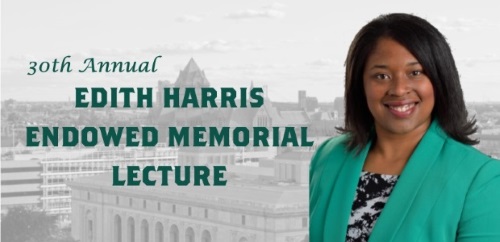Social Work's 30th Annual Edith Harris Lecture to explore impact of Flint water crisis
The Wayne State School of Social Work's 30th Annual Edith Harris Lecture will explore the environmental and mental health repercussions that have resulted from the lead contamination of Flint's water supply that began in 2014 and the subsequent poisoning of its residents.
On Nov. 9 from 1 to 3 p.m. in Wayne State's Community Arts Auditorium, social epidemiologist Vicki Johnson-Lawrence will deliver "Supporting Resiliency and Well-Being Through Stress and Adversity: Building a Path Forward From the Flint Water Crisis." Johnson-Lawrence, an assistant professor in the Family Medicine Division of Public Health and adjunct professor of Epidemiology and Biostatics in the College of Human Medicine at Michigan State University, serves as project director of Flint ReCAST (Resiliency in Communities After Stress and Trauma). ReCAST, a Substance Abuse and Mental Health Services Administration funded initiative, supports families and mitigates the impact of trauma. Johnson-Lawrence is also a visiting assistant research professor in the Department of Public Health and Health Sciences at the University of Michigan-Flint and contributes to The Flint Center for Health Equity Solutions Church Challenge.
The free lecture, which will be presented by the School of Social Work and its Office of Continuing Education and Professional Development, is open to the public and has been approved by the Michigan Social Work Continuing Education Collaborative for two CE contract hours. Those attending will learn about community-based trauma-informed approaches taken in Flint, about resilience in the context of vulnerable communities, and about trauma-informed definitions and potential impact across clinical, community, and policy arenas.
The author of more than 45 peer-review publications and presentations, Johnson-Lawrence uses community-based approaches to address determinants and prevention practices to promote health equity. Her work considers the dynamic nature of psychosocial factors over the life course in relation to chronic disease risk, with a particular focus on co-morbid mental and physical health outcomes (particularly mood/anxiety disorders and cardiovascular disease risk factors) exacerbated by chronic stress. She also looks at strategies to address these conditions in vulnerable communities.
For more information about the lecture and CE contract hours, contact Lauree Emery at ab7097@wayne.edu or 313-577-9348 or visit the Wayne State University Event Calendar.
